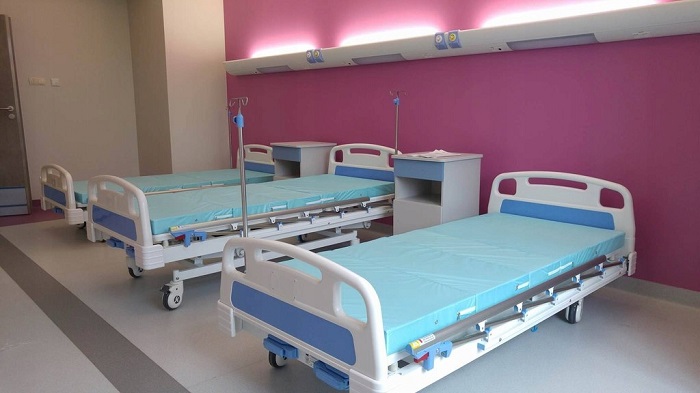
A comprehensive guide to hospital bed mattresses
Hospital bed mattresses play a crucial role in patient care, ensuring comfort and preventing complications like pressure sores. This guide delves into the features, benefits, and considerations when choosing a hospital bed mattress.
Features and Benefits
- Material: Made from high-density polyurethane foam (28 kg/m³), ensuring durability and support.
- Maintenance: Detachable, washable, and waterproof covers make maintenance easy and promote hygiene.
- Customizable: Sizes can be customized to fit specific hospital bed requirements.
- Comfort: Designed to prevent pressure sores, enhancing patient comfort, particularly in ICU settings.
Considerations
When selecting a hospital bed mattress, consider the following:
- Density: Higher density provides better support.
- Ease of Cleaning: Waterproof and washable covers are essential.
- Customization: Ensure the mattress fits the bed perfectly.
- Anti-Decubitus Design: Prevents bedsores and enhances patient well-being.
Types of Hospital Bed Mattresses
There are various types of hospital bed mattresses designed to meet specific patient needs:
- Foam Mattresses: Known for their affordability and comfort, foam mattresses provide basic support and are suitable for patients with low to moderate risk of pressure sores.
- Gel Mattresses: These mattresses are excellent for temperature regulation, preventing overheating and offering comfort for patients who may be prone to sweating.
- Air Mattresses: Ideal for patients at high risk of pressure sores, air mattresses can be adjusted to redistribute pressure and improve circulation.
Importance of Pressure Relief
Pressure relief is a critical aspect of hospital bed mattresses. Prolonged pressure on certain body parts can lead to bedsores, which are painful and can lead to severe infections. Mattresses designed with pressure-relieving properties distribute weight evenly, reducing the risk of bedsores. Features like alternating pressure systems and low air loss technology are particularly beneficial for immobile patients or those with existing pressure ulcers.
Infection Control and Hygiene
Infection control is paramount in healthcare settings. Hospital bed mattresses should have antimicrobial properties and be easy to clean. Mattresses with waterproof covers prevent fluids from penetrating the mattress, reducing the risk of contamination. Regular cleaning and maintenance protocols should be established to ensure the mattresses remain hygienic and safe for patient use.
Economic Considerations
While investing in high-quality hospital bed mattresses might seem costly initially, it can lead to long-term savings. Quality mattresses reduce the incidence of pressure sores and other complications, decreasing the need for additional treatments and extended hospital stays. Moreover, durable mattresses have a longer lifespan, reducing the frequency of replacements and associated costs.
Choosing the right hospital bed mattress is vital for patient care. High-density foam mattresses with customizable sizes and easy maintenance features are ideal for healthcare settings, ensuring both comfort and hygiene.
For more detailed information and product inquiries, visit Hospital Bed Foam Mattress.


